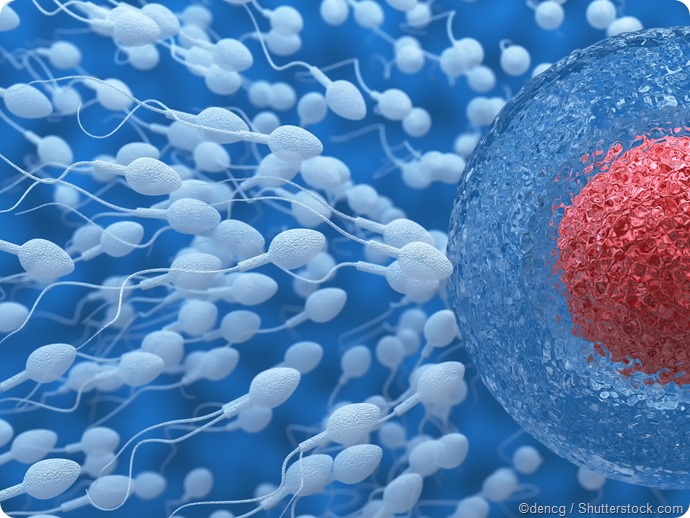Fertility refers to the ability of a couple to conceive and give birth to a child. It develops once a person has passed puberty. For women it marks the start of their reproductive years – this iswhen they begin ovulating and menstruation. For men the signs like cracking of the voice and becoming more hirsute are symbolic of being able to produce sperm.

When a couple has unprotected sex with the intention of conceiving for more than a year, but do not get pregnant, it is termed infertility. The ability to reproduce healthy offspring is closely linked with the age of the couple. One often stated statistic is that women over 35 years will find it difficult to conceive even after a year of trying.
Studies on Fertility
Psychologist Jean Twenge from San Diego University discovered that this fact, about women over 35 years not being able to conceive, is based on data collected in France in the 1700s from church birth records. Considering the state of healthcare in that century, one may assume that the statistic is not true today.
A study by David Dunson in 2004 revealed that women in the 27-34 year age bracket are likely to conceive 86% of the time within a year of trying. For those in the 35-39 year age group, the figure is 82%. The chance of women older than 40 years trying to conceive is lower, but it is still a distinct possibility.
Fertility has a tendency to decline with age, but this doesn’t occur at an alarming rate. However, as the probability of chromosomal abnormalities in a baby tends to rise with the age of the mother, it is a good idea to have a baby at a younger age. If one is unable to have a child earlier in life, measures can be taken to ensure that the fertility stays high.
Protecting Female Fertility
The quality of eggs produced after the female turns 35 years old tends to decline. Consequentially their fertility rate declines as well. This is why one in three females, over 35 years of age, has trouble conceiving. After the age of 40 years two in three females have fertility problems. Some steps may be taken to protect the egg quality for longer periods of time.
- One should avoid smoking as females who smoke are likely to reach menopause two years earlier than those who don’t.
- One should avoid being overweight as polycystic ovary syndrome (PCOS) that causes infertility, is much worse for obese females.
- Protection from sexually transmitted diseases like chlamydia and gonorrhoea is important as these often damage the female’s fallopian tubes.
- Healthy eggs can be harvested when in your twenties for fertility treatments such as In Vitro Fertilisation (IVF) later in life.
How a Woman's Age affects her Fertility
Protecting Male Fertility
The quality of sperm that a male produces is directly linked to his physical health. If he is in good shape, the male can produce healthy sperm until 60 years of age before the sperm count begins to go down. Certain precautions can help the male ensure a healthy sperm count and production.
- One should avoid smoking and drinking when trying to conceive a child as these activities can damage the sperm.
- The testicular temperature should be kept a few degrees lower than the body temperature to avoid slow sperm production. One should avoid placing their laptop directly in the lap, hot water baths and tight underwear.
- One should avoid exposure to radiation and hazardous chemicals as they damage the sperm being produced. There should also be no unnecessary x-ray exposure to the lower part of the body.
Infertility Treatments
A couple who is unable to conceive in the natural manner may look at becoming pregnant using infertility treatments – the most suitable would depend on the nature of the fertility problem. Should the female be unable to ovulate, the doctor may medicate her to regulate her ovulation. In case of older women who have reached menopause, it may even require inducing ovulation.
For a male with a low sperm count, sperm may be retrieved and washed to ensure high count. This may be followed by Intrauterine Insemination (IUI). The process places healthy sperm in the uterus of the female during ovulation hoping that natural fertilisation takes place.
Assisted Reproductive Technology (ART) is a term that can refer to any of the fertility treatments that involve handling of the egg or the sperm. It can cover techniques such as Intracytoplasmic sperm injection or ICSI, assisted hatching, donated eggs, donated sperm and even surrogacy.
New methods to handle infertility are being researched all the time. This gives hope to many infertile couples who wish to have a baby, but are currently unable to conceive.
References
- http://www.bbc.com/news/magazine-24128176
- http://www.nhs.uk/Livewell/Fertility/Pages/Protectyourfertility.aspx
- https://www.asrm.org/uploadedFiles/ASRM_Content/Resources/Patient_Resources/Fact_Sheets_and_Info_Booklets/agefertility.pdf
- http://www.babycentre.co.uk/a6155/your-age-and-fertility
Further Reading
Last Updated: Feb 26, 2019